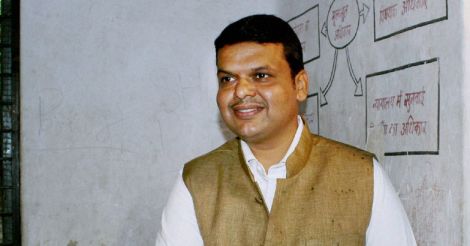The PM has been persuading CMs of the BJP and its allies to usher in reforms in order to make it easier to set up new businesses. Maharashtra Chief Minister Devendra Fadnavis has quietly unravelled a procedural reform that makes it easier for new businesses to come up in the hospitality sector in Mumbai.
To start restaurants, bars and lodging rooms in the state capital, there is no need to take a police licence from now on. The licensing department is considered one of the most corruption-prone arms of the Mumbai police.
Ironically, licenses are to be taken only from the Brihanmumbai Municipal Corporation, considered another den of graft, from now on. Through such moves, Fadnavis aims to make it easier to do business by chipping away regulatory practices. But the man who is pushing Fadnavis and other BJP chief ministers to ease rules and usher in reforms is Narendra Modi.
The prime minister, who is frustrated that the Congress is stalling his reforms agenda, has been pushing his own party chief ministers to relax labour laws. Rajasthan Chief Minister Vasundhara Raje has relaxed the industrial relations law, which have made it easier for companies to get rid of redundant workers despite protests from trade unions.
Madhya Pradesh Chief Minister Shivraj Chauhan, in his hurry to sanction new projects, has stripped the powers of many ministries, causing heartburn among several senior ministers.
Chauhan has even offered cash compensation if project clearance is delayed in his office. But environmental activists have voiced concern that many polluting industries are being permitted in the name of speedy industrialisation.
Modi decided to prompt the BJP CMs from the western and central belt of the country due to several reasons. The main reason for this stemmed from the frustration that his grand ideas for reforms were struck in Parliament, including the proposal for goods and services tax (GST). Secondly, he was constantly reminded by foreign investors and domestic industry organisations that red tape and corruption was endemic in most states.
And Modi is more experienced at running a state government than tackling the complex legal and political bottlenecks at the Centre. When the winter session of Parliament failed to transact many key legislation, Modi got in touch with BJP CMs in Maharashtra, Gujarat, Madhya Pradesh, Jharkand, Chattisgarh and Haryana. He wanted them to showcase how things could be done and thereby influence states ruled by the Opposition. Among the BJP allies, he was more successful with the reform-minded Chandrababu Naidu in Andhra Pradesh than with Akali Dal in Punjab.
Modi was also signalling that those states that shared a rapport with the PM would absorb the first wave of investments from Japan, China, United States and Australia.
The prime minister also set up a unit in the Niti Aayog under member Bibek Debroy to suggest ways to simplify rules under central laws, which can be done by executive order without going to Parliament for approval.
Such was the zeal of Madhya Pradesh CM Shivraj Chauhan that he has been generous towards elite drinkers. He has permitted everyone with an annual income of Rs10 lakh to keep up to 100 bottles of liquor at home. Interestingly, Modi had taken away LPG subsidy for those who have taxable annual income of Rs10 lakh or above.

























 Maharashtra Chief Minister Devendra Fadnavis (file photo)
Maharashtra Chief Minister Devendra Fadnavis (file photo)
Disclaimer
The comments posted here/below/in the given space are not on behalf of Manorama. The person posting the comment will be in sole ownership of its responsibility. According to the central government's IT rules, obscene or offensive statement made against a person, religion, community or nation is a punishable offense, and legal action would be taken against people who indulge in such activities.